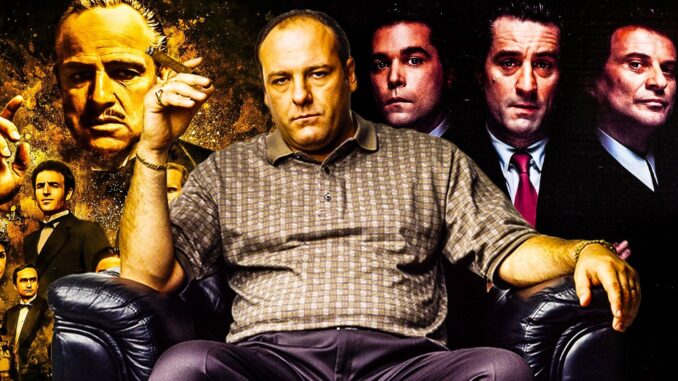
The Godfather director Francis Ford Coppola shares a glowing review for The Sopranos. Widely considered one of the greatest directors of all time, Coppola’s status was cemented with The Godfather in 1972, which is widely considered one of the greatest and most influential films ever made that also revolutionized the gangster genre. The Sopranos, similarly, premiered in 1999 and is considered one of the greatest and most influential television series of all time that also had a profound effect on the gangster genre.
During a recent interview with Rolling Stone ahead of the theatrical release of Megalopolis, Coppola shared a glowing review for The Sopranos, calling it “incredible.” Coppola notes that creator David Chase originally wanted to be a filmmaker, and incorporated many cinematic techniques into the show and by doing so, elevated the art form to a level that rivals or even surpasses cinema, an achievement that Coppola finds remarkable. Read his full review below: The Sopranos is incredible. [David Chase] wanted to be a moviemaker, and you can see all of these cinematic influences in the show. And then he raised television storytelling to the level of movies, and maybe surpassed them. It’s kind of amazing.
How The Godfather Influenced The Sopranos

As Coppola notes, The Sopranos creator David Chase originally wanted to be a filmmaker, and was particularly influenced by classic gangster movies such as The Public Enemy, but also The Godfather. The Sopranos, in addition to being considered one of the greatest and most influential television series of all time, is also credited with kickstarting the Golden Age of Television or prestige television which – with sophisticated storytelling, complex characters, and high-production values – aims to deliver the cinematic quality expected from feature films.
The Godfather also significantly influenced The Sopranos in its portrayal of organized crime, particularly its exploration of family dynamics and the complexities of loyalty within a criminal organization. Both works delve into the duality of their protagonists, Michael Corleone and Tony Soprano, men who are ruthless criminals but also caring family men. This tension between a criminal life and the desire for normal family life is deeply rooted in The Godfather and The Sopranos, where the protagonists’ descent into crime is paralleled by their efforts to protect their families.
The Sopranos takes the mythology established by The Godfather movies – of the mafia as a romanticized, almost noble institution – and builds on it, but also deconstructs it by exploring the day-to-day reality of life within a crime family. While The Godfather presents the Corleone family with a sense of grandeur – emphasizing themes of honor, loyalty, and the tragic downfall of a powerful dynasty – The Sopranos strips away this veneer to reveal the mundane and often petty aspects of mob life. Tony and his crew are portrayed not as larger-than-life figures, but as flawed everyday men who happen to be criminals.
In doing so, The Sopranos delves deep into the insecurities, neuroses, and dysfunctions of its titular mob boss, presenting a much more grounded and humanized view of the mafia that contrasts sharply with the epic, almost Shakespearean tone of The Godfather. Tony’s struggles with depression and anxiety further deconstruct the myth, highlighting the psychological toll of leading a criminal life that The Godfather only hints at in Michael Corleone’s eventual alienation. Overall, The Godfather had a profound impact on shaping The Sopranos, not just in its portrayal of the mafia, but as a complex exploration of identity, power, and morality.
